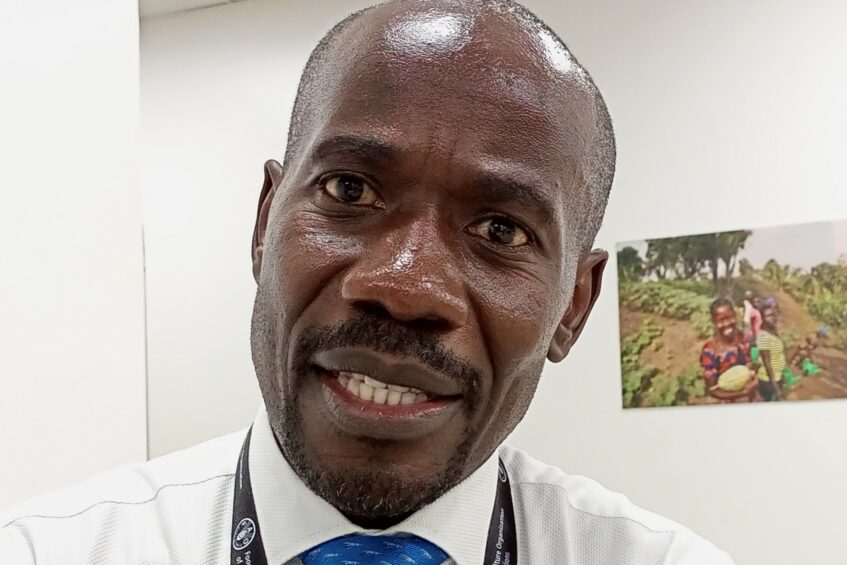
Mr. Meshack Malo, the FAO Country representative to South Sudan - credit | Charles Wote/Eye Radio | May 30, 2022
Vice President Dr. James Wani Igga has urged development partners to provide more agricultural tools to farmers to boost food production in the country.
This, he says, will reduce reliance on relief aid assistance in the country.
According to a recent World Bank report, South Sudan remains in a serious humanitarian crisis with some 8.9 million people estimated in need of humanitarian assistance in 2022, an increase of 600,000 since 2021.
The group added that living conditions continue to be impacted by violence, displacement and climate shocks.
Public expenditures on key social sectors including health, education, water and sanitation, agriculture and rural development are limited, the World Bank stated.
Similarly, the group adds that extreme levels of acute food insecurity persist across the country and an estimated 8.3 million people, including refugees, are expected to experience severe food insecurity in the coming lean season.
Speaking during the inauguration of the FAO office in Juba on Monday, Dr. James Wani Igga says it’s time to move from humanitarian to development activities.
“Time has come for us to move from humanitarians, have less for humanitarians not totally abandon it to development. This is what will cement our peace because where there is development, there is happiness,” VP Wani said.
“There is a good road, there are good schools, there are good hospitals so who the hell would want to go and fight in the bush for what? They are happy,
“It is better we give the hoes rather than to continue to give the food and people learn to be spoon fed and this is happening in many places in South Sudan. I am not preventing you but combine the two please.”
According to the Food and Agriculture Organization of the United Nations, Western Equatoria is the only state that was able to produce its own food for the last conservative years.
The agency adds that food production has significantly declined in Western and Central Equatoria States due to the Tambura conflict and continuing insecurity in Yei area.
Meshack Malo, the FAO Country representative to South Sudan says South Sudan can produce its own food if only peace is realized at all levels.
“With peace, FAO wants to invest more in South Sudan. So, we are ramping up our investment because we believe that this country will be able to feed itself,” Malo said.
“We are looking for together with the government and other partners to make sure that we increase food production by about 300, 000 metric tons in the coming years,
“The important message is that peace is one of the important ingredients that we also need.”
South Sudan has millions of hectares of arable land considered suitable and is fertile for agriculture as well as plenty of rivers and basins.
Despite gaining independence in 2011, the country imports most of its basic requirements from the region.
Tomatoes, onions, maize flour, cooking oil, dairy products and beans are some of the food items still being imported from neighboring countries.
However, crop production levels in South Sudan reportedly declined in 2016 due to displacement of farmers in different parts of the country.
Support Eye Radio, the first independent radio broadcaster of news, information & entertainment in South Sudan.
Make a monthly or a one off contribution.
Copyright 2024. All rights reserved. Eye Radio is a product of Eye Media Limited.